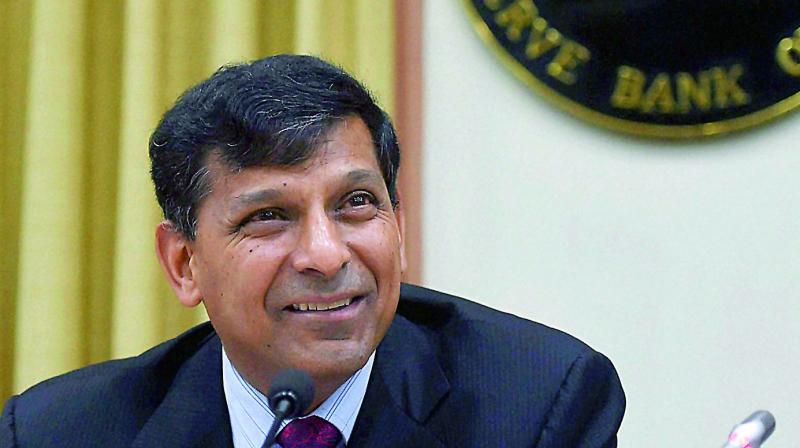Privatisation of PSBs not panacea; need to cut govt mandates for PSBs: Rajan
The calibrated reduction in SLR will continue till it reaches 18 per cent from the existing 19.5 per cent.

New Delhi: Pointing out that privatisation of public sector banks is not panacea for all ills, former RBI Governor Raghuram Rajan on Friday made a case for reduction of uncompensated mandates like lending targets and pushing government schemes through branches of state-owned lenders.
He also said there is a need to reduce the Statutory Liquidity Ratio and substituting this with the liquidity coverage ratios and net stable funding ratios set by Basel.
Last week, the RBI decided to reduce SLR, the portion of deposits required to be mandatorily invested in government bonds, by 0.25 per cent every quarter beginning January 2018. The calibrated reduction in SLR will continue till it reaches 18 per cent from the existing 19.5 per cent.
The banking system is overburdened with non-performing loans and there is a need to adequately professionalise boards of PSBs, Rajan said adding the government should do away with board appointments to avoid unnecessary politicisation.
"Much of the problem lies in PSBs but private sector banks like ICICI and Axis Bank, as well as some of the old private banks, have not been immune. Some of the malaise comes from a general need to improve governance, transparency and incentives in the system. However, the difficulties in even some private banks suggest that 'simple' solutions like privatising all public sector banks may be no panacea," he said.
The former RBI governor also expressed concerns over uncompensated government mandates being imposed on PSBs for a long time.
"This is lazy government – if an action is worth doing, it should be paid for out of budgetary resources. It also is against the interests of minority shareholders in PSBs. Finally, it does not draw the private sector in to compete for such activities," he said.
The government should incentivise all banks to take up activities it thinks desirable, not impose it on a few, especially as the privileges associated with a banking license diminish, Rajan added.
Noting that among the more dangerous mandates are lending targets and compulsory loan waivers, he said government-imposed credit targets are often achieved by abandoning appropriate due diligence and creating the environment for future NPAs. He also emphasised that the government should keep its banks well capitalised.
"This is simply good accounting practice, for it prevents the government from building up contingent liabilities on bank balance sheets that a future government will have to pay for," he said.
Rajan, who was 23rd Governor of the RBI, also observed that too many risks devolve onto banks, including those of interest rate volatility that banks elsewhere typically lay off in markets.
"Too much project risk stays with banks because other financial instruments such as equity and subordinate debt cannot be issued cheaply. Risk also returns through the backdoor; Banks do not make loans to housing developers because of their intrinsic risks. Nevertheless, they make loans to NBFCs, who make loans to developers," he said.
To prevent risk from returning to bank balance sheets, NBFCs must be able to raise money directly from markets, he added.

